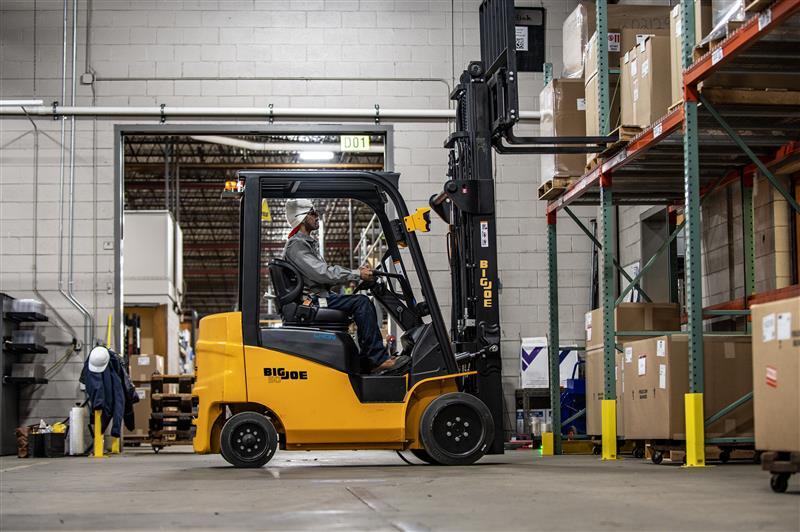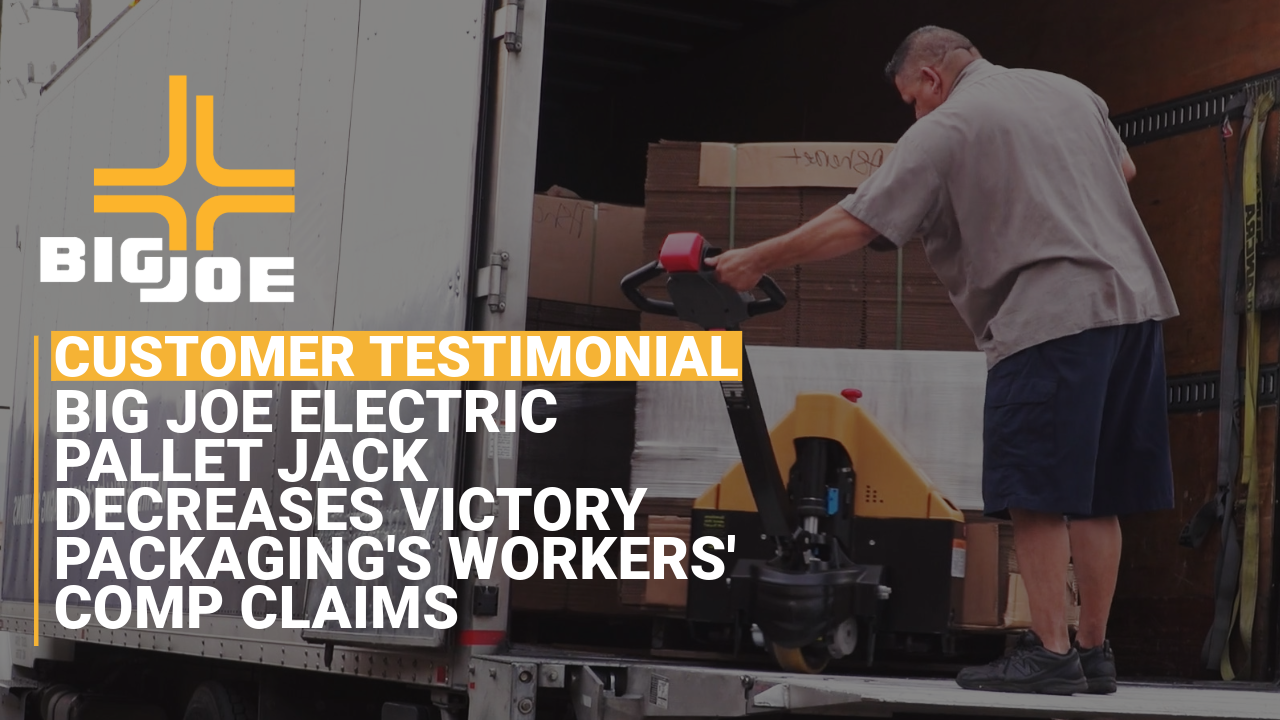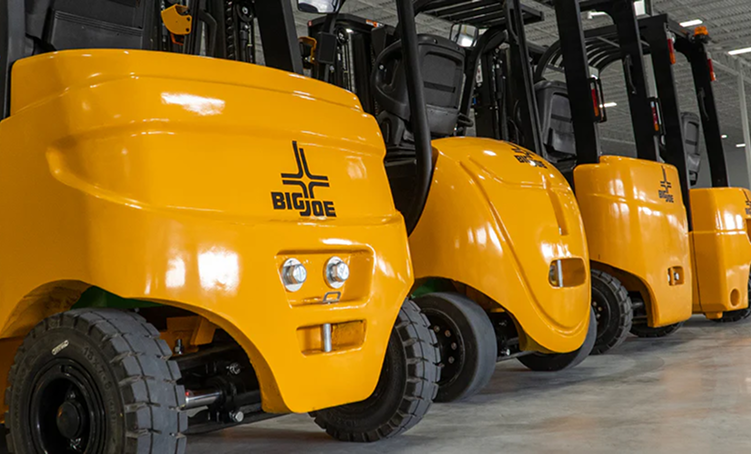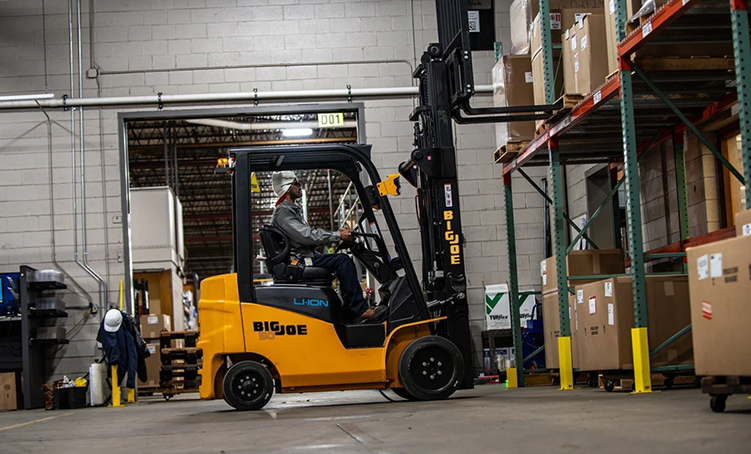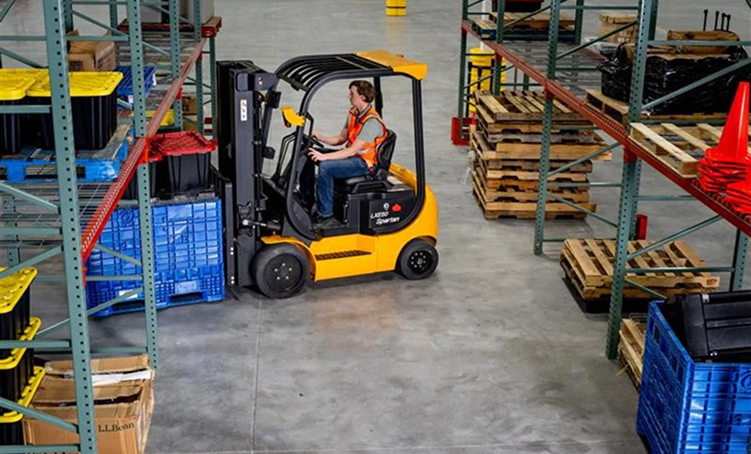NON-STOP PERFORMANCE 20+ HOURS EACH DAY.
Big Joe Forklifts Blog
For over 15 years, Wolter has been a trusted partner in providing forklifts, storage, and handling s...
Logistics facilities are under increasing pressure as supply chain disruptions, evolving regulations...
Duratrack, located in Elk Grove Village IL is a manufacturer of track and trolley systems used for o...
Habitat for Humanity ReStore in Portage, Wisconsin, had been using a propane forklift and a 30-year-...
National Forklift Safety Day 2025 will be observed on Tuesday, June 10th. This annual event, organiz...
Lithium-ion battery-powered forklifts are becoming the industry standard due to their superior effic...
Victory Packaging’s slogan is "The Architects of Packaging Solutions." The company operates over 65 ...
The days of saying propane and diesel forklifts cannot be replaced with electrics are all but over i...
Grocery distributors and food manufacturers have their processes down to a science. But like any goo...
It’s safe to say the industrial lift truck market has been somewhat volatile over the last 5 years. ...
There’s no way an electric forklift could replace an internal combustion (IC) model, right? That may...

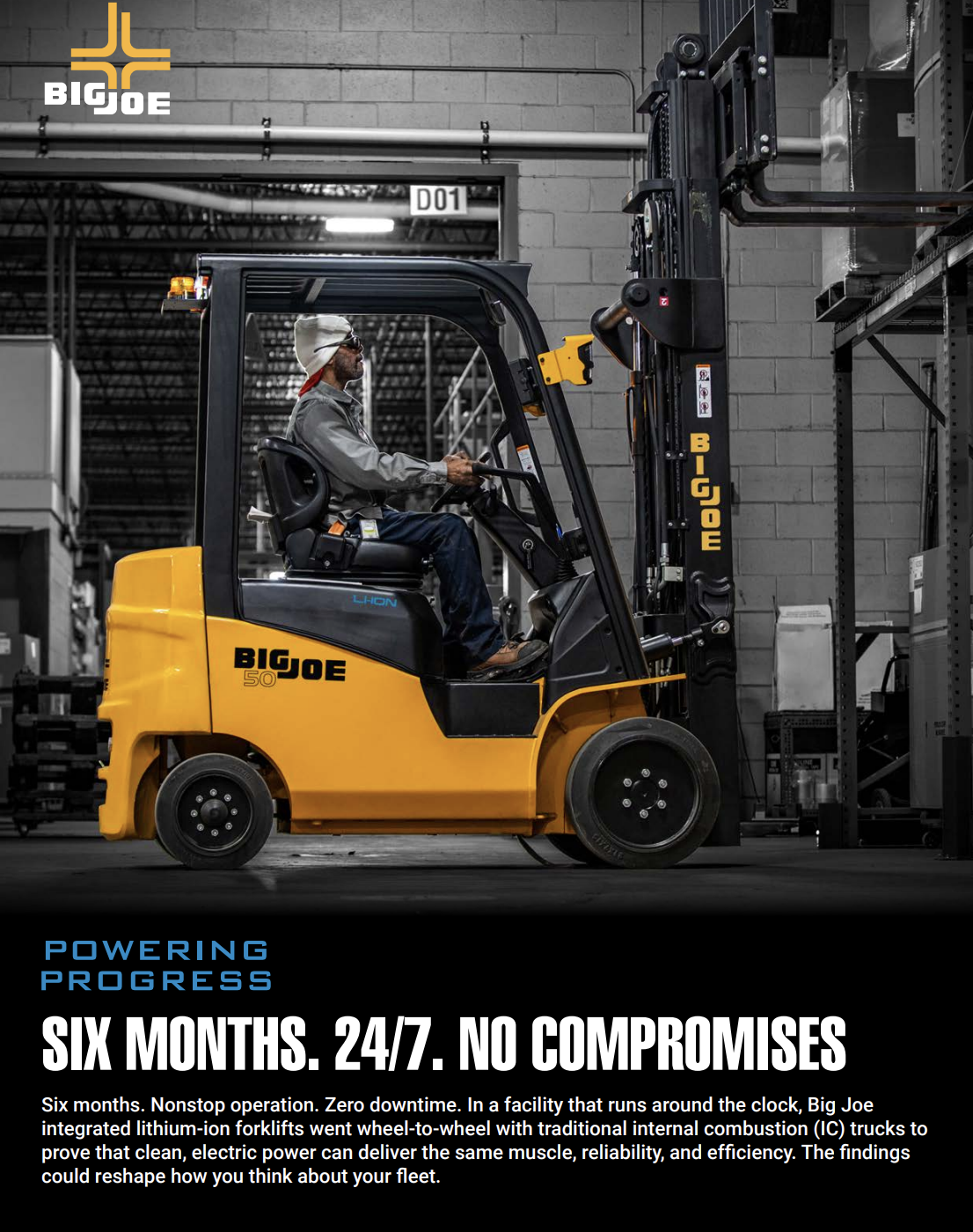

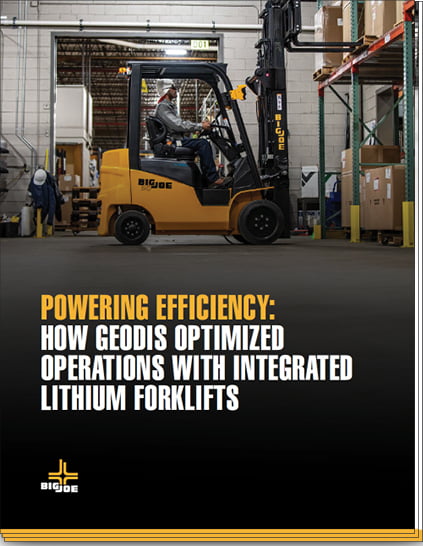
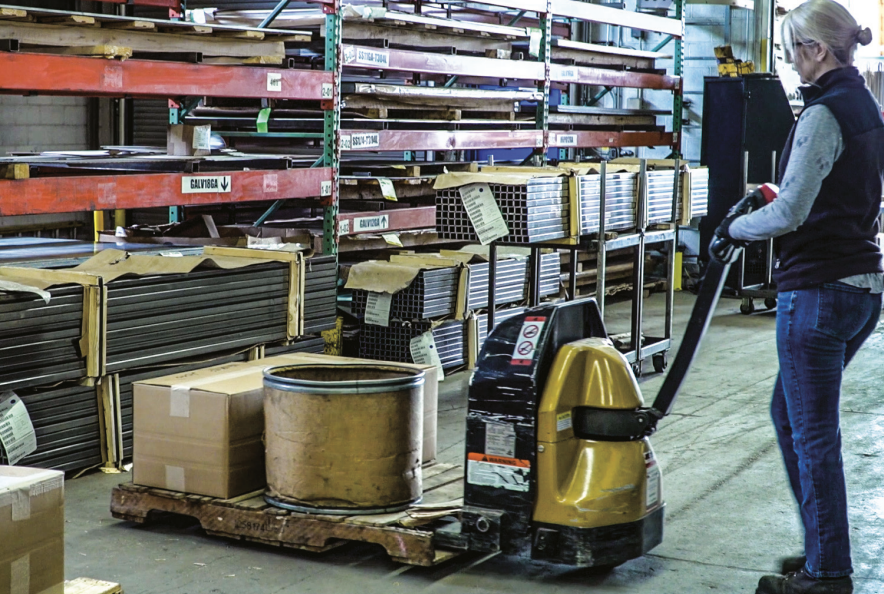
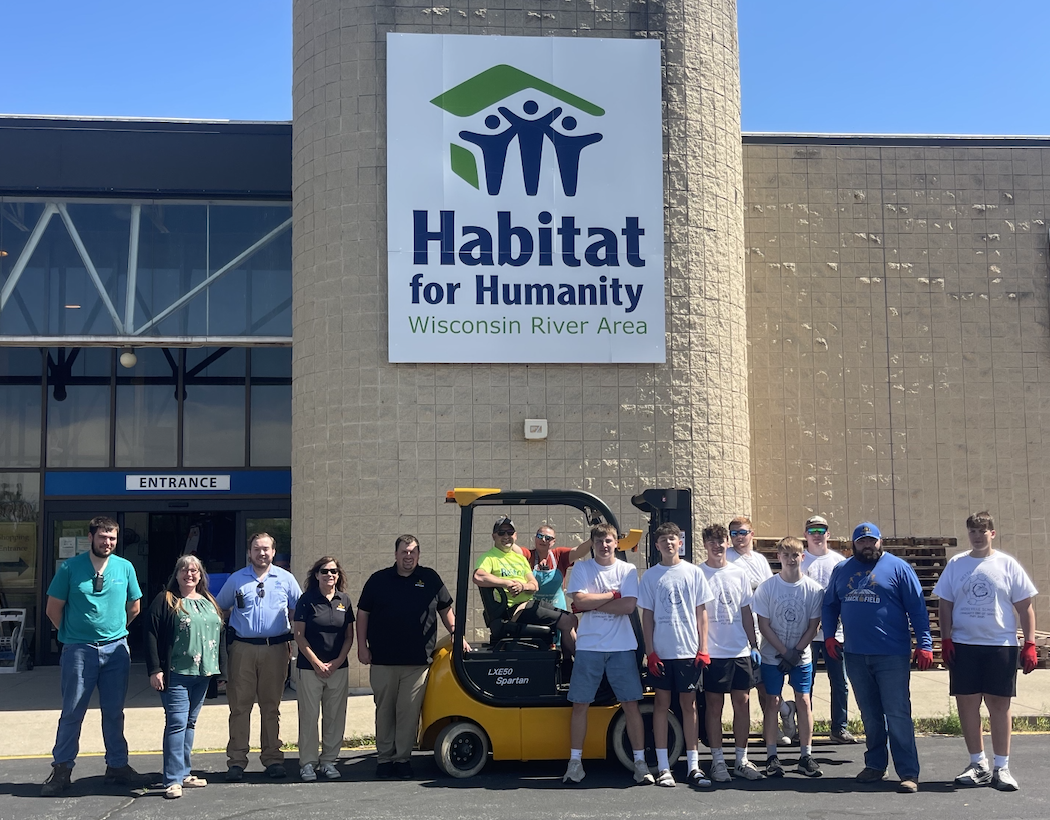
-1.jpg)
